Filter by
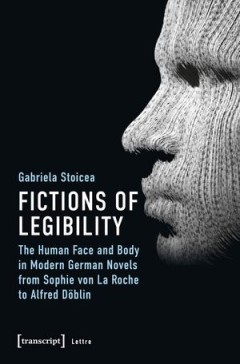
Fictions of Legibility : The Human Face and Body in Modern German Novels from…
Gabriela Stoicea examines how the incidence and role of physical descriptions in German novels changed between 1771 and 1929 in response to developments in the study of the human face and body. As well as engaging the tools and methods of literary analysis, the study uses a cultural studies approach to offer a constellation of ideas and polemics surrounding the readability of the human body. By…
- Edition
- -
- ISBN/ISSN
- 9783839447208
- Collation
- 200 halaman
- Series Title
- -
- Call Number
- 800 STO f

John Donne's Christian Vocation
John Donne’s poetry is often difficult and perplexing, even more so because it undergoes a shift away from secular topics after he converts and begins to lead a religious life. Robert S. Jackson’s John Donne’s Christian Vocation is one of the first studies that takes seriously the ways that Donne’s Christian vocation permeates all of Donne’s writings, not just those after his conversi…
- Edition
- -
- ISBN/ISSN
- 9780810138476
- Collation
- 200 halaman
- Series Title
- -
- Call Number
- 800 JAC j
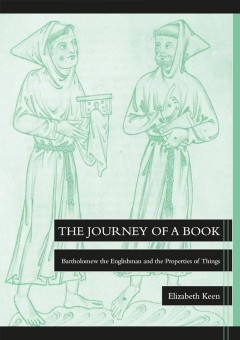
The Journey of a Book : Bartholomew the Englishman and the Properties of Things
De proprietatibus rerum, ‘On the properties of things’, has long been referred to by scholars as a medieval encyclopedia, but evidence suggests that it has been many things to many people. The sheer number of extant manuscript copies and printed editions, along with translations, adaptations, and mentions in poems and sermons, testify to its continuous significance for Europeans of all esta…
- Edition
- -
- ISBN/ISSN
- 9781921313073
- Collation
- -
- Series Title
- -
- Call Number
- 800 KEE j
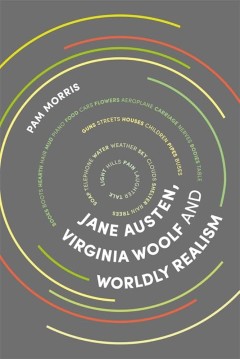
Jane Austen, Virginia Woolf and Worldly Realism
Austen and Woolf are materialists, this book argues. "Things" in their novels give us entry into some of the most contentious issues of the day. This wholly materialist understanding produces worldly realism, an experimental writing practice which asserts egalitarian continuity between people, things and the physical world. This radical redistribution of the importance of material objects and b…
- Edition
- -
- ISBN/ISSN
- 9781474419130
- Collation
- 256 halaman
- Series Title
- -
- Call Number
- 800 MOR j
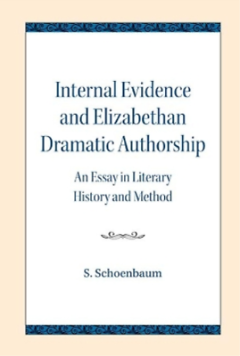
Internal Evidence and Elizabethan Dramatic Authorship : An Essay in Literary …
Internal Evidence and Elizabethan Dramatic Authorship provides one the earliest attempts to write a theoretical method for evidence within plays to help determine authorship or to help distinguish the work of one author from another. Samuel Schoenbaum’s study remains valuable, for the attempt to attribute unattributed plays to one or another author remains an ongoing conversation within early…
- Edition
- -
- ISBN/ISSN
- 9780810138674
- Collation
- 304 halaman
- Series Title
- -
- Call Number
- 800 SCH i
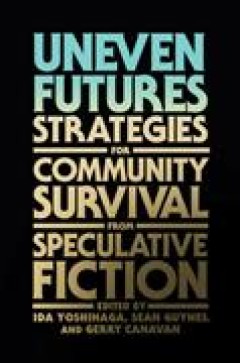
Uneven Futures: Strategies for Community Survival from Speculative Fiction
Essays on speculative/science fiction explore the futures that feed our most cherished fantasies and terrifying nightmares, while helping diverse communities devise new survival strategies for a tough millennium. The explosion in speculative/science fiction (SF) across different media from the late twentieth century to the present has compelled those in the field of SF studies to rethink the…
- Edition
- -
- ISBN/ISSN
- 9780262370172
- Collation
- -
- Series Title
- -
- Call Number
- 808 UNE
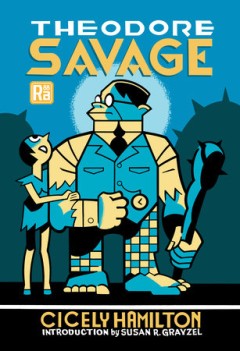
Radium Age Theodore Savage
From one of the earliest feminist science fiction writers, a novel that envisions the fall of civilization—and the plight of the modern woman in a post-apocalyptic wilderness. When war breaks out in Europe, British civilization collapses overnight. The ironically named protagonist must learn to survive by his wits in a new Britain. When we first meet Theodore Savage, he is a complacent civ…
- Edition
- -
- ISBN/ISSN
- 9780262373616
- Collation
- -
- Series Title
- -
- Call Number
- 808 HAM t
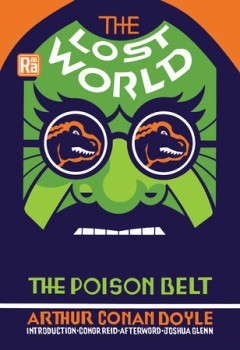
The Lost World and The Poison Bel
A heart-stopping adventure tale featuring a brilliant scientist—as insufferably pompous as Doyle's most famous character—and his unlikely trio, and its apocalyptic sequel. In 1912, the creator of Sherlock Holmes introduced his readers to yet another genius adventurer, Professor Challenger, who in his very first outing would journey to South America in search of... an isolated plateau cra…
- Edition
- -
- ISBN/ISSN
- 9780262373784
- Collation
- -
- Series Title
- -
- Call Number
- 808 DOY t
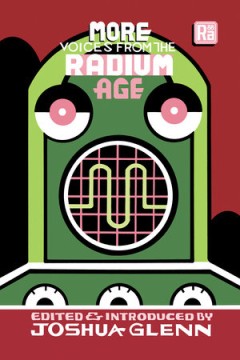
More Voices from the Radium Age
An essential collection of proto–science fiction stories that reveals the diverse literary milieu out of which the sci fi genre emerged. A planetary escape pod, an alien body-snatcher, an underground Alaskan city, and a war between the sexes in Atlantis! These are just a few of the outré elements you'll find in More Voices from the Radium Age, a showcase of proto–science fiction edited …
- Edition
- -
- ISBN/ISSN
- 9780262376075
- Collation
- -
- Series Title
- -
- Call Number
- 808 GLE m
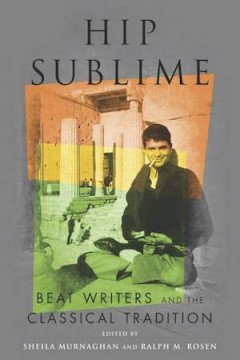
Hip Sublime : Beat Writers and the Classical Tradition
In their continual attempt to transcend what they perceived as the superficiality, commercialism, and precariousness of life in post-World War II America, the Beat writers turned to the classical authors who provided, on the one hand, a discourse of sublimity to help them articulate their desire for a purity of experience, and, on the other, a venerable literary heritage. This volume examines f…
- Edition
- -
- ISBN/ISSN
- 9780814213551
- Collation
- -
- Series Title
- -
- Call Number
- 800 MUR h
 Computer Science, Information & General Works
Computer Science, Information & General Works  Philosophy & Psychology
Philosophy & Psychology  Religion
Religion  Social Sciences
Social Sciences  Language
Language  Pure Science
Pure Science  Applied Sciences
Applied Sciences  Art & Recreation
Art & Recreation  Literature
Literature  History & Geography
History & Geography